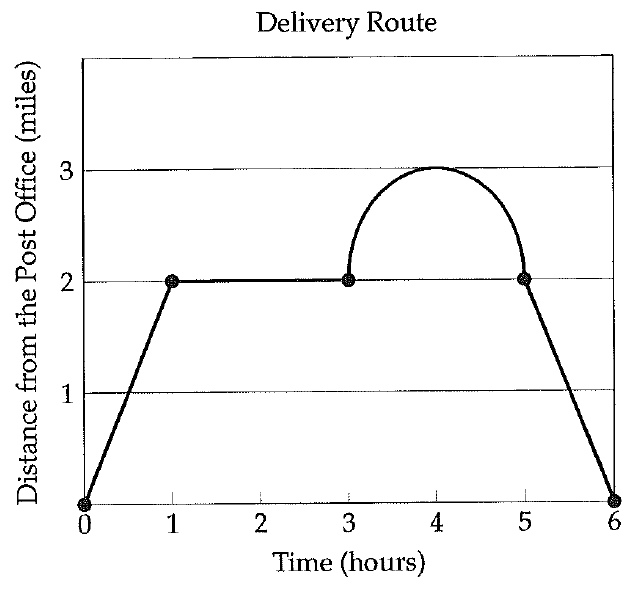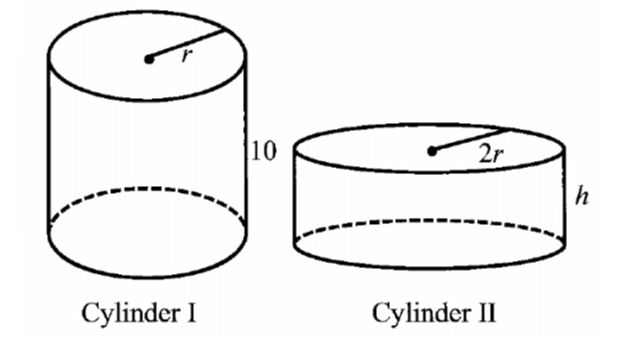PRACTICE PROBLEMS BASED ON BPT THEOREM
Question 1 :
In fig. if PQ || BC and PR || CD prove that
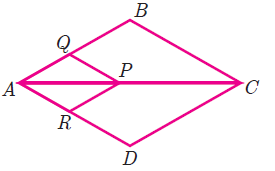
(i) AR/RD = AQ/AB
Solution :
PQ || BC
AP/PC = AQ/QB ---(1)
PR || CD
AP/PC = AR/RD ---(2)
(1) = (2)
AQ/QB = AR/RD
(ii) QB/AQ = DR/AR
Solution :
Taking reciprocal on the first result, we get
QB/AQ = DR/AR
Question 2 :
Rhombus PQRB is inscribed in ΔABC such that ÐB is one of its angle. P, Q and R lie on AB, AC and BC respectively. If AB = 12 cm and BC = 6 cm, find the sides PQ, RB of the rhombus
Solution :
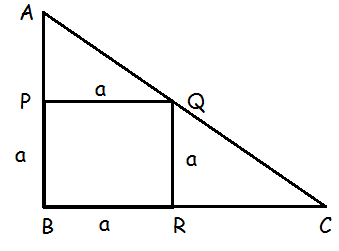
In triangle ABC, BC is parallel to PQ.
Let side of rhombus be a cm.
Given AB = 12 cm. So AP = 12 – a
BC = 6 cm
We have AP / AB = PQ / BC
12 – a / 12 = a / 6
12 a = 72 – 6 a
18 a = 72
a = 72 / 18
a = 4 cm
PQ = 4 cm and RB = 4 cm
Question 3 :
In trapezium ABCD, AB || DC , E and F are points on non-parallel sides AD and BC respectively, such that EF || AB . Show that AE/ED = BF/FC
Solution :
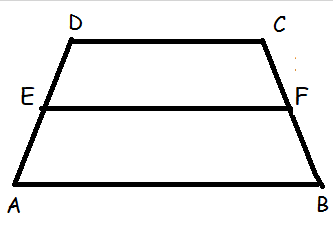
Let us join the vertices D and B which intersects the side EF at the point T.
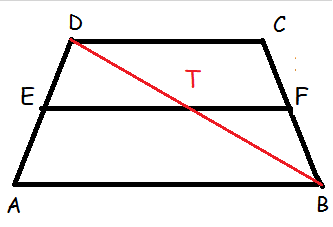
In triangle DAB,
DE/EA = DT/TB -----(1)
In triangle DBC
BT/TD = BF/FC -----(2)
Now let us take the reciprocal of (2) and equate them with (1). So we get
TD/BT = FC/BF
DE/DA = FC/BF
Take reciprocal on both sides, we get
DA/DE = BF/FC
Hence proved.
Question 4 :
In figure DE || BC and CD || EF. Prove that AD2 = AB×AF
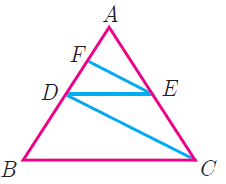
Solution :
In triangle ABC,
AD/DB = AE/EC ------(1)
In triangle ADC,
AF/FD = AE/EC -----(2)
(1) = (2)
AD/DB = AF/FD
Taking reciprocal on both side, so we get
DB/AD = FD/AF
Add 1 on both sides, we get
(DB/AD) + 1 = (FD/AF ) + 1
(DB + AD)/AD = (FD + AF)/AF
AB/AD = AD/AF
AD2 = AB x AF
Hence proved.
Kindly mail your feedback to v4formath@gmail.com
We always appreciate your feedback.
©All rights reserved. onlinemath4all.com
Recent Articles
-
SAT Math Resources (Videos, Concepts, Worksheets and More)
Jan 29, 25 06:00 AM
SAT Math Resources (Videos, Concepts, Worksheets and More) -
Digital SAT Math Problems and Solutions (Part - 105)
Jan 29, 25 05:52 AM
Digital SAT Math Problems and Solutions (Part - 105) -
Digital SAT Math Problems and Solutions (Part - 104)
Jan 27, 25 11:29 AM
Digital SAT Math Problems and Solutions (Part - 104)
